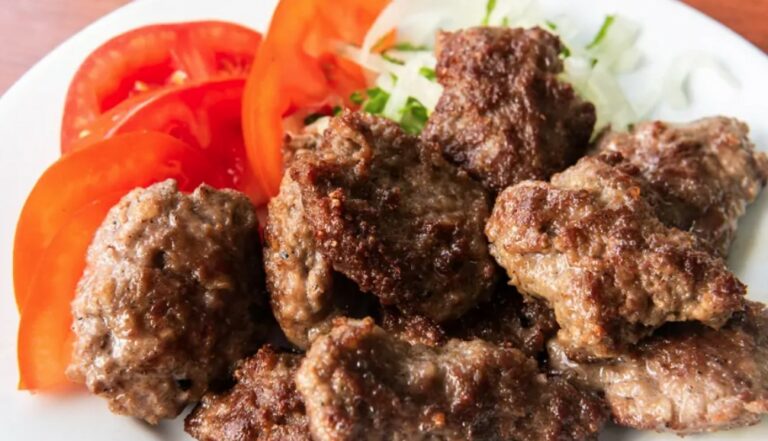Introduction
Albanian cuisine is a rich combination of flavors and traditions that have been molded over centuries of influences from neighboring countries. Located in Southeastern Europe, Albania shares borders with Greece, Italy, Montenegro, Kosovo, and North Macedonia. As a result, it has been greatly influenced by the culinary practices of these neighboring countries, each contributing to the unique taste of Albanian cuisine.
Greece: The Culinary Connection
One of the closest and most significant culinary influences on Albanian cuisine comes from Greece. Albania’s long coastline and proximity to Greece have led to the adoption of many Greek culinary traditions, such as the use of olive oil, feta cheese, and seafood in Albanian cuisine. The Greeks also introduced the use of herbs such as oregano, thyme, and rosemary, which are now commonly used in Albanian dishes. Baklava, a popular Greek pastry, is also a favorite in Albania.
Italian Influence on Albanian Cuisine
Italy, another neighbor of Albania, has also contributed its culinary traditions to Albanian cuisine. Albanians have adopted Italian pasta dishes and pizza, which have become popular staples in Albania. Italian-style bread and desserts, like tiramisu and cannoli, are also frequently enjoyed in Albanian households. The use of tomato sauce, garlic, and basil in Albanian cuisine is also an Italian influence that has made its way into Albanian dishes.
Turkish Influence on Albanian Cuisine
Turkey, a former ruling power in Albania, has had a significant influence on Albanian cuisine. Turkish coffee and tea are popular beverages in Albania, and dishes like kebab, pilaf, and baklava are common in Albanian restaurants. Turkish spices, such as cumin, coriander, and cinnamon, also find their way into Albanian cuisine.
Balkan Fusion: Austrian & Serbian Flavors
Albania shares its northern border with Montenegro, which has had a significant influence on Albanian cuisine. Austrian and Serbian flavors have also been adopted, especially in the northern regions of Albania. Cabbage rolls, called sarma, and cevapi, a type of grilled meatballs, are dishes that have been influenced by the Balkan region.
Mediterranean Influence on Albanian Cuisine
Albania’s location on the Mediterranean has also had a significant impact on Albanian cuisine. Seafood is a popular staple in Albania, and dishes such as grilled squid, octopus salad, and fried sardines are commonly found in restaurants along the coast. Mediterranean vegetables such as eggplant, zucchini, and peppers are also commonly used in Albanian cuisine.
The Impact of Ottoman Rule on Albanian Cuisine
Ottoman rule over Albania for 500 years has also left a lasting impact on Albanian cuisine. The use of lamb, beef, and poultry, as well as spices like clove and nutmeg, can be traced back to Ottoman cuisine. The use of yogurt and other dairy products are also a result of Ottoman influence.
Conclusion: A Rich Tapestry of Flavors
Albanian cuisine is a rich tapestry of flavors and traditions that have been molded over centuries of cultural exchange with neighboring countries. The Greek, Italian, Turkish, Austrian, and Serbian culinary influences have shaped Albanian cuisine into a unique and flavorful experience. The Mediterranean influence and Ottoman legacy have also contributed to the diverse range of flavors that make Albanian cuisine so enjoyable. Visitors to Albania can expect to find a delicious blend of flavors and ingredients that reflect the country’s cultural heritage.

